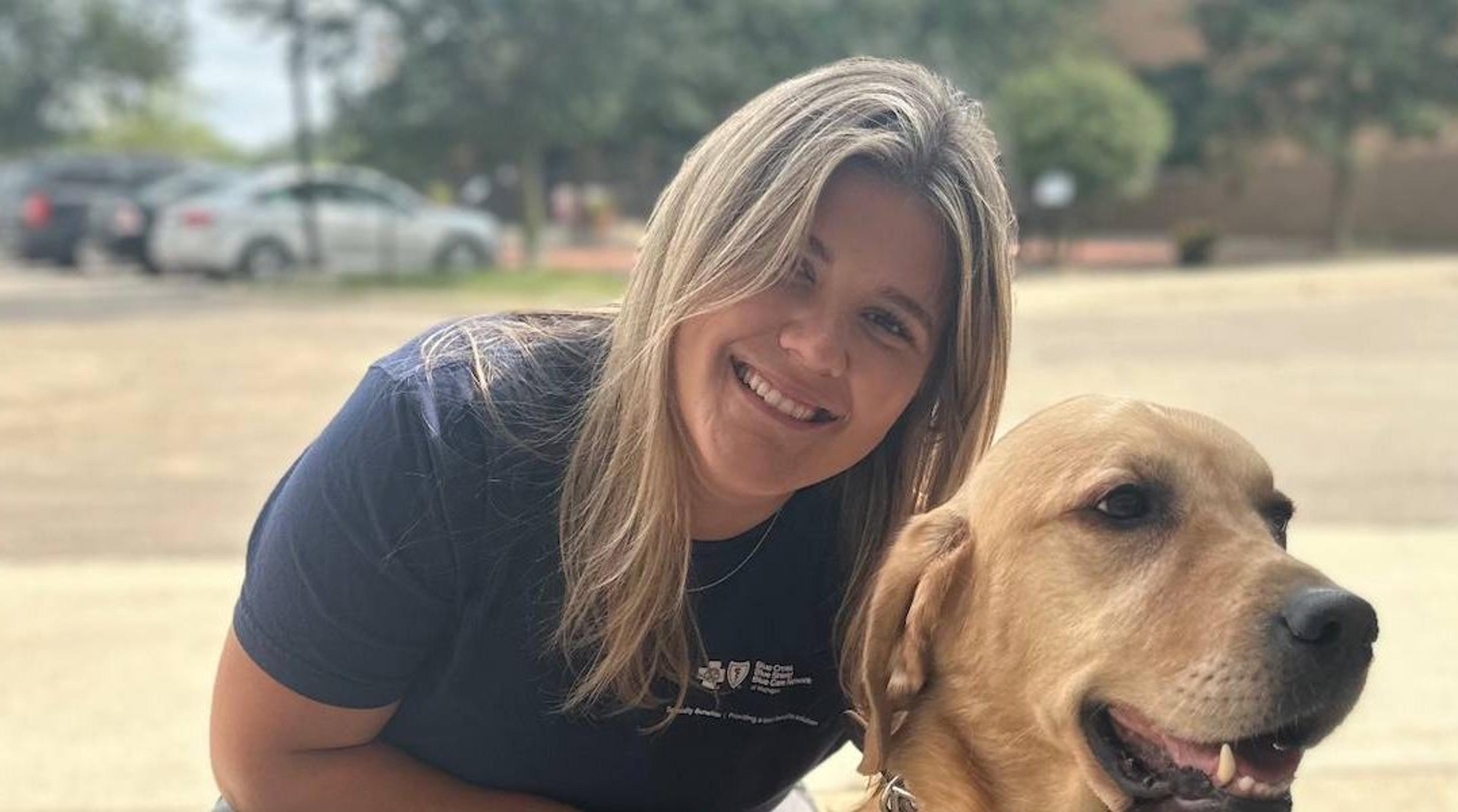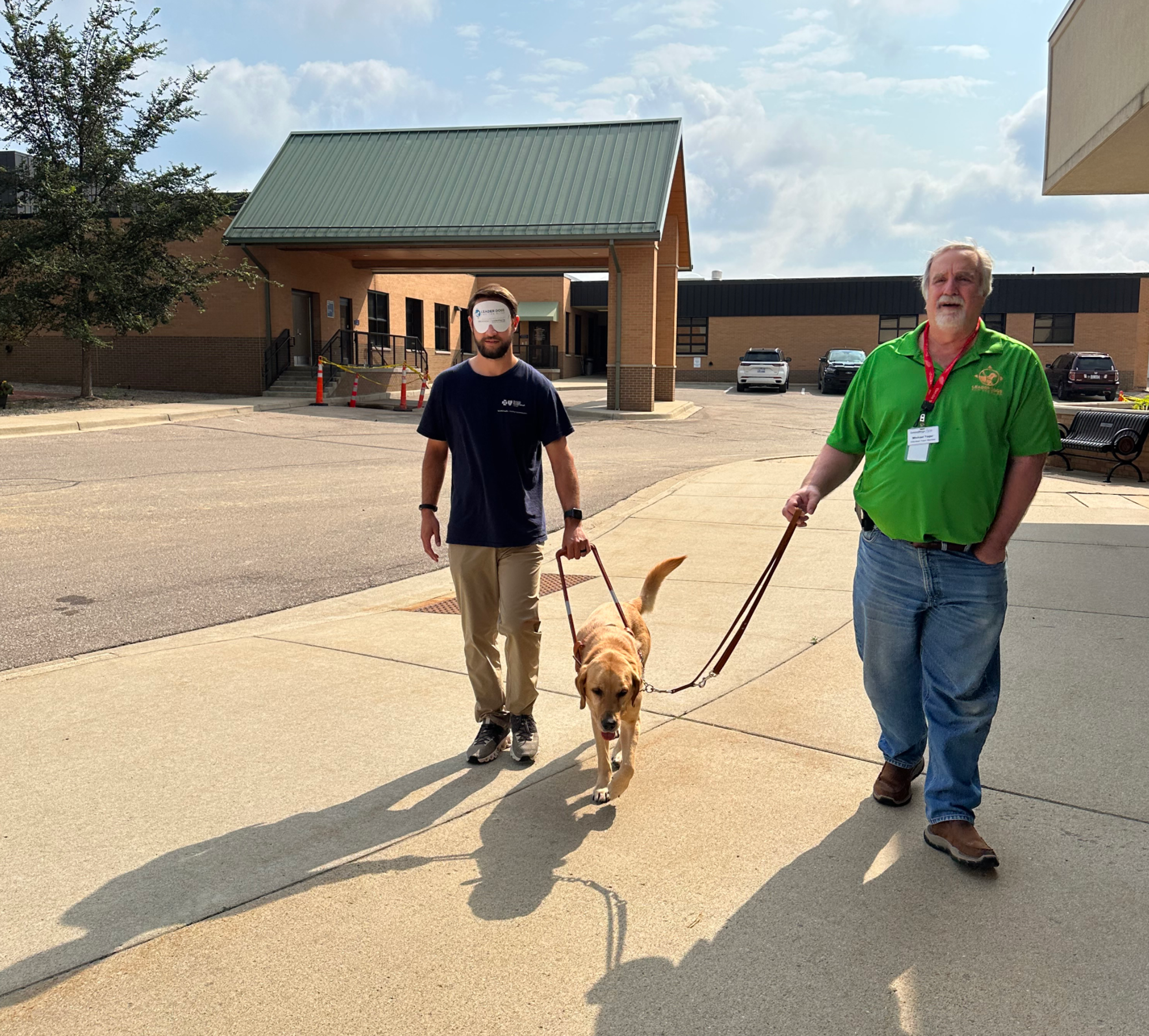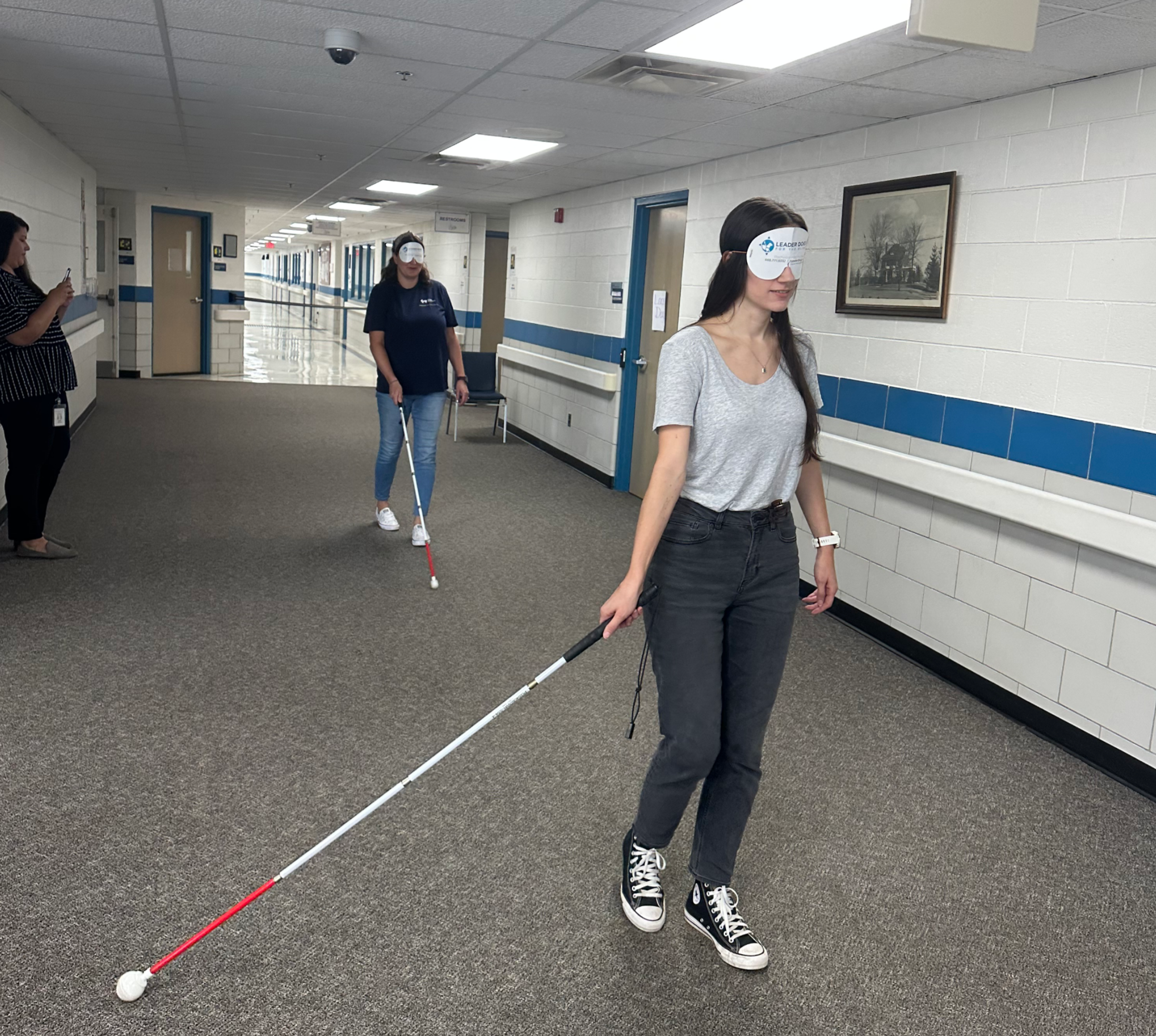Leader Dogs for the Blind Teaches the Visually Impaired to Travel Safely and Independently at No Cost
Jake Newby
| 4 min read

Only 10%of legally blind U.S. citizens travel safely and independently with a white cane or a guide dog. Leader Dogs for the Blind – a 100% philanthropically-funded organization – works feverishly to increase that figure by empowering those who are blind or visually impaired with the lifelong skills needed for safe and independent daily travel.
“So many things that a lot of us take for granted – going to get our mail, picking up our kids from school, going grocery shopping – when all that’s taken away, it’s incredibly challenging and it’s also incredibly isolating,” said Leader Dogs for the Blind Outreach Services and Community Engagement Manager, Leslie Hopkins. “Many times, individuals don’t have resources or referrals or know what to do or where to go. Especially if they can’t lean on somebody with experience.”

Blindness or vision impairment takes a devastating emotional toll on a person, as well, one that’s hard for others to fully understand.
“Vision can be really tricky,” Hopkins said. “One day (a person) might be able to see and use some vision and the next day they can’t, depending on the lighting or situation. And trying to explain that to other people can be challenging. That isolation comes into play when you feel like no one can relate or understand, and you don’t have a pathway of what to do next.”
Leader Dogs of the Blind programs help change lives
Leader Dogs pours its resources into two key programs for clients: the Orientation and Mobility (O&M) training, which is long white cane training, and the Guide Dog Program.
“Our programs are developed to help individuals who are blind or visually impaired to navigate safely, maneuver the environment and get from point A to point B without any assistance,” Hopkins said.
O&M training: This is a one-week, individualized residential program in which clients stay on Leader Dogs’ Rochester Hills campus and learn where they are, where they’re going and how to get there. The mobility side of the training revolves around navigating safely with a white cane across a wide variety of environments, such as residential, semi-business, business, city and rural settings. Identifying cracks in sidewalks, level changes such as stairs, and going through doors are examples.
Guide Dog Program: This is for individuals interested in traveling a bit faster and more easily, depending on a dog to guide them around obstacles and stop them at curves. Guide dogs are matched with clients with the best possible long-term partnership in mind. An individualized three-week training period allows the client and their furry friend to get to know each other and mimic the environment they will encounter everyday once the training ends and they leave the Leader Dog campus.

“Knowing that you’re not alone is huge,” Hopkins said. “There are so many people that are experiencing this and going through this. There are lots of support groups available and resources, but there are plans. There are ways to navigate without vision, and we’re here to help with that.
“I’d also point out for loved ones that understanding vision loss can be very tricky,” she went on. “Vision is not reliable, so understanding what your loved one might be experiencing day to day can be tough. It’s a roller coaster of emotions with highs and lows but do know there are resources available to help with every step of the way, whether that be with the technology, with travel or daily living skills like cooking and laundry and things like that. There are techniques and tips and tricks to do everything, it’s just about getting started, which can sometimes be the hardest part.”
Travel and board are covered for all Leader Dogs of the Blind clients. The campus is located right here in Michigan, in Rochester Hills. Those interested can apply for Leader Dogs programs on their website. Anyone interested in volunteering or hosting a breeding dog should check out the website for more information, as well.
Everyone is encouraged to schedule an annual comprehensive eye exam to spot, treat or prevent various eye diseases. If you have vision insurance through Blue Cross Blue Shield of Michigan, login to your BCBSM member account to access the find-a-doctor tool. Additionally, if you or a loved one know someone who is struggling with total or partial vision loss and would like to learn more about Leader Dogs, click here.
Keep reading:
Photo credit: Mackenzie Harris





